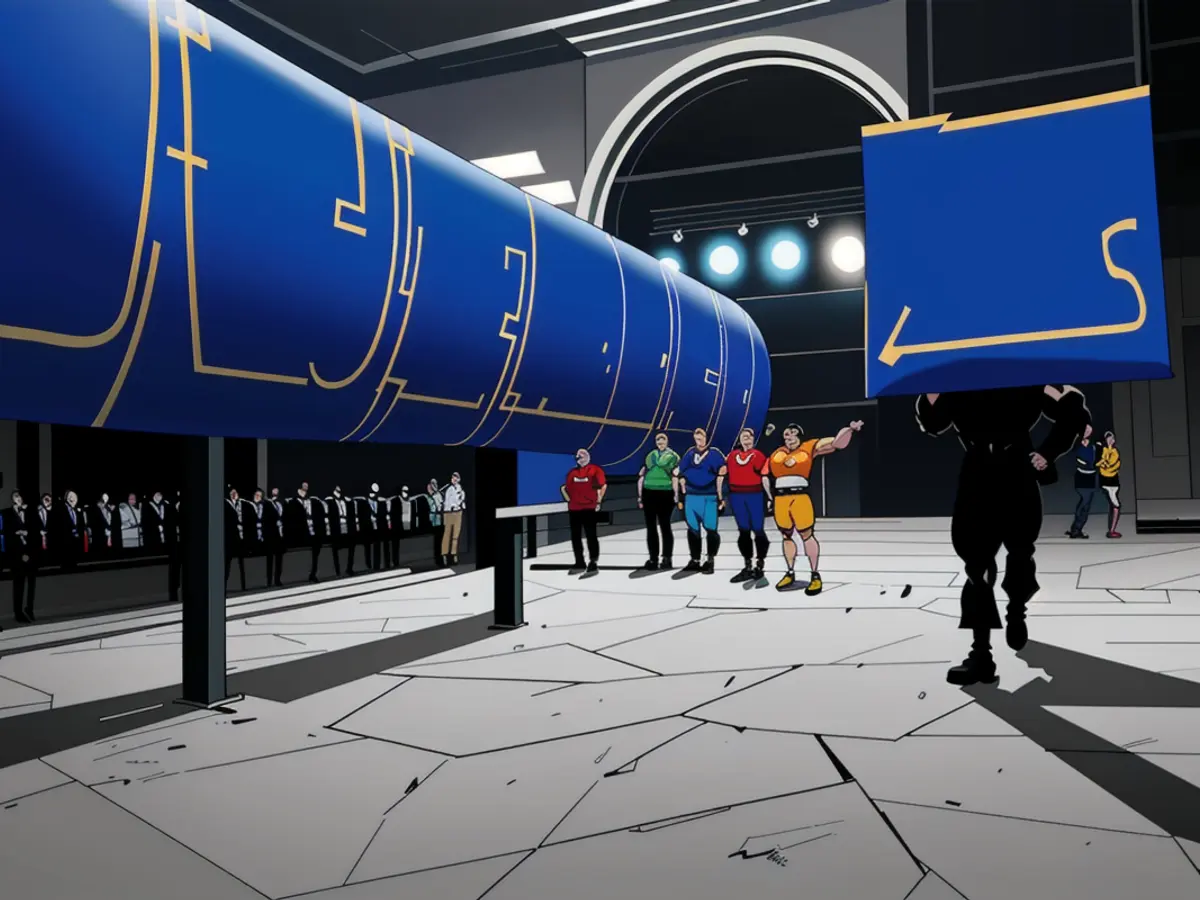Negotiations Wrap Up: Black-Red Coalition's Key Points to Watch
Coalition negotiations' initial phase concludes - Key talks imminent
Social Media: Reddit Twitter Facebook Instagram LinkedIn TikTok Email Print Copy Link 📝 Contains adult themes and political debate. Advisory: Reader discretion is advised.
The working group negotiations for the Union (CDU/CSU) and the Social Democratic Party (SPD) coalition in Germany are drawing to a close. The black-red alliance aims to set the coalition on track by Easter, with key issues now being discussed at the top level.
As of this afternoon, the joint working groups are set to submit their written results. In the following days, these findings will be reviewed and consolidated. Outstanding issues will then be tackled in small-scale discussions in the new week.
Some major disputes have arisen in the working groups, focusing on taxes, social policy, and irregular migration control. The SPD's demand for the legalization of abortions in the first 12 weeks has also been a source of contention.
Agreements on the Horizon?
There have reportedly been agreements reached on several topics, including state modernization and bureaucracy reduction. Additionally, there is general consensus on the need to reform the Federal Police Act, create a legally secure obligation to store IP addresses, and implement measures to protect critical infrastructure facilities, as required by the European Union.
What's Next?
In the coming days, the 19-er round—consisting of the party chairpeople, CDU General Secretary Carsten Linnemann, and Defense Minister Boris Pistorius—will meet to discuss and resolve the most significant disagreements. The plan was initially to finalize the remaining questions in early April, but some in the Union are skeptical of setting a rigid timeline to avoid weakening their negotiating position.
Fiscal Flexibility
Securing the approval of the Greens, Union, and SPD have unlocked additional financial leeway for the coming years. However, there remains controversy over how this, beyond investments in defense, cybersecurity, civil defense, and climate protection, should be managed. Detailed discussions on tax relief designs are still ongoing, with only broad commitments made: to relieve the broad middle class through an income tax reform and to initiate a corporate tax reform in the next legislative period.
Tone Shifts and Personnel Matters
CDU Chairman Friedrich Merz is under pressure to change his stance with political adversaries. In parallel to the negotiations, parties are busy clearing up important personnel issues. On Monday, the Green Party will elect their new faction leader, with Katharina Dröge, Britta Haßelmann, Omid Nouripour, Katrin Göring-Eckardt, and Claudia Roth vying for the position. The SPD, CDU, Left Party, and AfD will also nominate their candidates for the vice post.
Following these selections, the Bundestag will hold its constitutive session on Tuesday, where the election for the Bundestag presidency will take place.
Political Relationships:
- SPD
- Alliance 90/The Greens
- CDU
- The Left
- Friedrich Merz
- Bodo Ramelow
- AfD
- Boris Pistorius
- German Bundestag
- Coalition negotiations
- Potential Grand Coalition
Background Information:
Taxes- Recents reports do not provide considerable insights into specific tax policies, although significant financial decisions have been made, including opening up hundreds of billions of euros in new borrowing for military and infrastructure, including green energy[1]. This suggests a willingness to invest in key sectors without a direct focus on taxation.
Social Policy- The coalition talks are under pressure from the CDU/CSU to obtain traditional conservative policy concessions, such as welfare cuts, although these have not been detailed in recent reports[1]. The use of new borrowing has been agreed upon to strengthen infrastructure and green energy, whose indirect effects on social policies by providing more resources are not explicitly mentioned.
Irregular Migration Control- The coalition partners have reportedly reached agreements on drastic measures to tighten migration policy: - Increasing detention capacity for illegal migrants awaiting deportation. - Suspending family reunification for migrants for two years. - Expanding the list of safe countries to include Algeria, India, Morocco, and Tunisia. - Deporting migrants who face prison sentences. - Abolishing mandatory legal assistance before repatriation[4].
[1] ntv.de
[2] dw.com
[3] tagesschau.de
[4] rp-online.de
- The black-red coalition in Germany, consisting of the CDU/CSU and SPD, is discussing employment policies extensively in their negotiations, aiming to establish a solid employment strategy.
- The coalition's Easter deadline for setting the coalition on track may be subject to revision, as some Union members advocate for a flexible approach to avoid weakening their negotiating position.
- The CDU, a key member of the black-red coalition, is likely to face questions about its political relationships, particularly with the SPD, as negotiations progress and key personnel matters are resolved.








